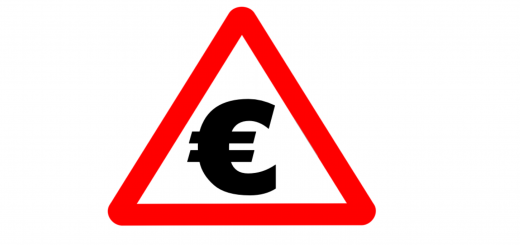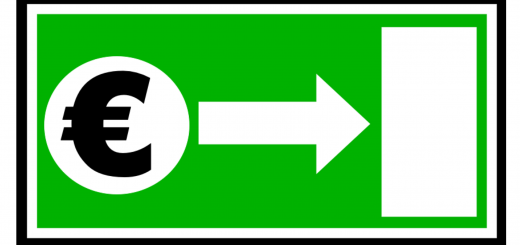Simplify social services with a universal basic income

At the moment we have a social system where you are protected at the bottom by a social assistance benefit. Very good, but you really cannot live on social assistance alone. So there are additional facilities in the Netherlands such as social rental housing and rent and health insurance compensation. The facilities are quickly phased out if you have just a little more income to prevent everyone from claiming it. At the point where you can “just / just not” make ends meet, you are not entitled to these social provisions due to this reduction. This creates the feeling for many middle class incomes that they have to keep running and work more and more to make ends meet. Nowadays, a house is usually bought from two incomes and if you do not qualify for that, even more money will be spent on the rental property in the free sector. Falling down from a middle class income is actually no longer an option. Because once you’ve done your best to have some savings, or have a house, that must be spend before the social services become available again. In that position you slowly lose everything you have built up before you are really helped
Wouldn’t it be much nicer if there was an unconditional basic income for everyone so that you can make ends meet. A basic income with which you can leave your parental home and create a place together. A basic income that you can fall back on when your relationship is over and you can be better on your own. A basic income from which you can build a business until it is profitable itself. A basic income that you can fall back on if you can no longer work due to illness. And a basic income that allows you to spend time on what is really important in your life, such as your children, family or friends.
But how much money do you need to make ends meet without other social services? I think for the Netherlands we are talking about an unconditional amount of € 2,000 net per person per month. That seems like a lot compared to the current minimum wage of € 1,680 gross per month, or a social assistance benefit of € 1,176. But as said; you have to fall back on a free sector rental home and you will no longer receive any compensations or other benefits. An example calculation of Nibud for a median income results in expenditure of € 3.000, – for 2 persons with a rent of € 600, – per month. Calculated back to a single-person household, this therefore provides room for the same expenses per person of € 1,200 per month plus a rent of € 800. With the proposed net basic income of € 2,000 per month, this person can just about make ends meet with a free sector rented house after a divorce, with possibly some cutbacks.
Apart from the flexibility that a basic income gives to all Dutch people, it also gives something back to the people who are now dependent on benefits. If you now receive a benefit, you may get the feeling that everyone sees you as a profiteer and that they have to work to pay your benefit, even if you cannot do anything about it due to circumstances. I think you only really get your self-esteem back when you not only get it, but everyone gets it. Everyone can then choose whether they are happy with this and live a sober life, or whether they would like to go on an extra holiday and provide extra income. In addition, extra earnings must be about as much wages as now, so that people still actively commit themselves to their own company or for an employer. But the dependency on salary should be reduced so that it becomes normal that you work 4 days and have time for the children. And so that the natural dominant position of employers is broken. Because if the salary is not interesting, you better not work, or work for yourself. A basic income is thus also a way of limiting existing social exploitation.
Unfortunately, € 2,000 net per month for all Dutch people over 18 cannot be recouped by the State. But € 1,500 net per month unconditionally for everyone can. This means, for example, that a two-person household can manage on their joint basic income of € 3,000 per month only. This with minimal expenses and a rent of € 1,000 per month in the free sector. With this amount, a single-person household will remain dependent on a social rental home for the rent. Because the income with an extra basic income goes up at the bottom of the labor market, most social tenants can get a rent increase to a free sector rent. They will then continue to live in the house, but will pay a little more. This creates more income and space for the housing corporations to invest in the necessary extra homes.
To pay for this, all income other than the basic income of both employees and companies must be taxed at 70%. This may seem like a lot, but with constant income, the turning point for a single earner is € 70,000 gross per year. If you earn less now, you will improve. For dual earners this is jointly € 140,000 gross per year. For the vast majority, this ultimately concerns a higher total income with the same salary from the employer. Since it is an advantage for more than 95% of the Dutch, that 95% would have to go up against the few percent for whom it is a disadvantage. The small group that earns a higher salary pays about 10% more than now, but can bear this well with the higher income. In that respect it becomes comparable to the income tax above the 70% that was customary in the Netherlands between 1970 and 1990.
Apart from the tax increase, a large part of the basic income is covered because it completely replaces the current social provisions such as retirement provision (AOW) and social assistance benefits. In addition, the strange situation that companies pay less tax than employees can be remedied. The profit that arises from a further automation of society is therefore also returned to society to a proportionate extent. In the future, higher prosperity can therefore possibly be found in more free time instead of more consumption. Leisure is what ultimately benefits both happiness and health. That is good for the individual, but also for the costs of society as a whole. For this calculation I have not adjusted the VAT and wealth tax. However, with other political choices, this can also be used as compensation, allowing income tax and/or corporate tax to remain slightly lower.
In general, it can be said that the economy benefits from passing money around. For this it is more favorable that everyone has some extra money to spend and actually spend it than that it ends up with a few who only hoard or invest this. More is spent at the bottom of society, more invested at the top. The redistribution inherent in a universal basic income is therefore good for the economy. Investors also ultimately earn more when more money is spent. This extra profit also creates more tax, which largely recoups the basic income. The most important precondition for this is that there are no ways to avoid the tax. So in the future let’s focus on companies that bring prosperity and profits, not jobs. After all, profits and taxes on them are important to basic income and our prosperity, not work!
The calculation
It costs approximately € 251 billion per year to provide everyone in the Netherlands aged 18 and older with a net basic income of € 1,500 per month (14 million adults). Since it concerns a living allowance, this benefit is not for prisoners and people in a care or nursing home receive € 400 per month in living allowance (115,000 adults). In addition, parents of children receive a basic income of € 100 per month net for each child up to 18 years old. This is comparable to the current child benefit. That costs another 4 billion a year, slightly less than the current € 6.5 billion.
The basic income serves to replace a number of things from the national budget. This concerns, for example, social assistance, allowances, retirement provision (AOW), disability benefit (WAO) and student finance. In other words, roughly the expenditure on social security of € 97.8 billion. Adding up the specific individual parts based on the budget in the 2020 Millions Memorandum, results in a saving of expenditure of € 90 billion. Basically, an additional € 165 billion in coverage is needed to finance this change to a basic income.
Part of the extra expenditure is covered by a tax increase for all incomes. At the moment, the tax is levied somewhat spread out. Income tax including health insurance contributions, national insurance and employee insurance (paid by the employer) and including tax credits amount to between 43% and 51%. If this is structurally increased to 70%, then at least 40% income will be added. The income for wage and income tax, health insurance law, national insurance premiums and employee insurance premiums totaled € 192.5 billion in 2020. At least 40% is added to this, which amounts to an extra € 77 billion. This means there is still a shortfall of € 88 billion.
With 70% tax payment, all Dutch people up to an individual income of € 70,000 gross per year have more extra income from the € 1,500 net basic income per month than extra costs of the higher tax. For two-person households, this amounts to more than € 140,000 gross per year. So the top 5% of single-person households and the top 2% of two-person households are getting worse, the rest are getting better. If we immediately abolish the mortgage interest deduction in full, an extra € 14 billion will be created, which means that the turning point will be slightly earlier depending on the individual mortgage.
As I wrote in my article on the difference of tax between citizens and businesses, both should have a similar tax rate. In this case, that would amount to 70% of every euro profit. The payment is made in two steps, 16.5% and 22.55% corporate tax and 15% dividend tax. So, when charging 65% corporate tax, both citizens and businesses are going to pay about 70% tax. That is about three or four times the current 16.5% and 22.55%. This would therefore yield the Treasury an additional € 91.7 billion in corporate tax. On the other hand, the national insurance premiums will disappear, which will yield the same employers € 26.9 billion. It will therefore only cost companies 64.8 billion extra. The companies with few employees will therefore be more affected by the measures compared to companies that employ many employees. However, this does not show the disadvantage that those companies have, but the advantage they have now.
All in all, a tax increase for companies and high earners and a net benefit for employees with an income of up to € 70,000 gross per year. A calculation that also leaves € 19 billion per year to compensate for any unbalanced outcomes, for instance for disability and unemployment from a higher income. It can therefore be concluded that a basic income of € 1,500 net per month is possible for all Dutch citizens, provided the tax system is adjusted accordingly.
Support
You can supporting the official European Citizens’ Initiative through this direct link, or see more information here. If enough EU citizens support the initiative the EU has to decide if further actions are taken.






1 reactie
[…] English version […]